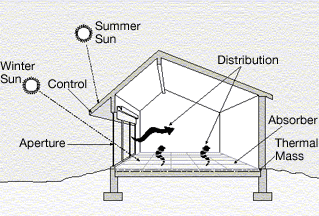|
Maren (energy Management System)
Maren is a marine energy management system used to minimize fuel usage, thereby reducing vessel operator's fuel cost and the harmful emissions. Maren is developed by Marorka in Iceland. Maren 2 was released in Q3 in 2005 and launched at the Icelandic Fisheries Exhibition that year. Maren 2 was awarded the best new product at the exhibition. Maren monitors the various energy systems onboard different types of vessels. It puts operating en environmental parameters in an energy management context. Maren uses simulation and optimization to deliver suggestions on how to improve the operation of the vessel to minimize fuel usage. See also *Fuel management systems A fuel is any material that can be made to react with other substances so that it releases energy as thermal energy or to be used for work. The concept was originally applied solely to those materials capable of releasing chemical energy but ... External links * {{Official website, www.marorka.com Energy conserv ... [...More Info...] [...Related Items...] OR: [Wikipedia] [Google] [Baidu] |
Marorka
{{More footnotes needed, date=May 2022 Marorka is a company which specializes in marine energy management. Marorka's head office is in Reykjavik, Iceland along with its servers and data storage infrastructure are supplied with electricity generated using 100% renewable energy resources – geothermal and hydroelectric. Marorka has international offices in Dubai, London and Shanghai. Mororka has an ISO 9001:2000 quality system, and is certified by Det Norske Veritas. Mission Marorka's mission is to deliver products and services to vessel owners and operators to save fuel, increase profitability and reduce harmful emissions. The company was founded in June 2002 and resulted from the PhD thesis of Jón Ágúst Thorsteinsson, Entrepreneur and founder. Systems Marorka has developed reliable, automated, on-board and online energy management systems for the international shipping industry. Marorka's products and services enable vessel operators to optimize fuel consumption by maximi ... [...More Info...] [...Related Items...] OR: [Wikipedia] [Google] [Baidu] |
Marine Energy Management
Marine energy management is the application of systematic methods to measure, register and analyze the energy usage of oceangoing vessels in specific. The goal of marine energy management is to *''maximize the (electrical or mechanical) energy generated from the minimum amount of fossil fuel'', and *''maximize the useful work obtained from the minimum amount of generated energy''. The IMO is the international body responsible for code regulation. These are two separated optimization problems. Marine energy management can both be applied on board and onshore. It is a complex problem, due to the number of inter-related energy systems on board vessels, such as the propulsion, the auxiliary engines, refrigeration systems, HVAC, etc. The weather and sea-state, plus the logistics involved in transporting goods from one port to another, also have big effects. Marine energy management can be addressed on board through measuring devices, monitoring systems and decision-support syst ... [...More Info...] [...Related Items...] OR: [Wikipedia] [Google] [Baidu] |
Energy Management System
An energy management system (EMS) is a system of computer-aided tools used by operators of electric utility grids to monitor, control, and optimize the performance of the generation or transmission system. Also, it can be used in small scale systems like microgrids. As electric vehicle (EV) charging becomes more popular smaller residential devices that manage when a EV can charge based on the total load vs total capacity of an electrical service are becoming popular. Terminology The computer technology is also referred to as SCADA/EMS or EMS/SCADA. In these respects, the terminology EMS then excludes the monitoring and control functions, but more specifically refers to the collective suite of power network applications and to the generation control and scheduling applications. Manufacturers of EMS also commonly supply a corresponding dispatcher training simulator (DTS). This related technology makes use of components of SCADA and EMS as a training tool for control center operator ... [...More Info...] [...Related Items...] OR: [Wikipedia] [Google] [Baidu] |
Simulation
A simulation is the imitation of the operation of a real-world process or system over time. Simulations require the use of models; the model represents the key characteristics or behaviors of the selected system or process, whereas the simulation represents the evolution of the model over time. Often, computers are used to execute the simulation. Simulation is used in many contexts, such as simulation of technology for performance tuning or optimizing, safety engineering, testing, training, education, and video games. Simulation is also used with scientific modelling of natural systems or human systems to gain insight into their functioning, as in economics. Simulation can be used to show the eventual real effects of alternative conditions and courses of action. Simulation is also used when the real system cannot be engaged, because it may not be accessible, or it may be dangerous or unacceptable to engage, or it is being designed but not yet built, or it may simply ... [...More Info...] [...Related Items...] OR: [Wikipedia] [Google] [Baidu] |
Process Optimization
Process optimization is the discipline of adjusting a process so as to optimize (make the best or most effective use of) some specified set of parameters without violating some constraint. The most common goals are minimizing cost and maximizing throughput and/or efficiency. This is one of the major quantitative tools in industrial decision making. When optimizing a process, the goal is to maximize one or more of the process specifications, while keeping all others within their constraints. This can be done by using a process mining tool, discovering the critical activities and bottlenecks, and acting only on them. Areas Fundamentally, there are three parameters that can be adjusted to affect optimal performance. They are: * Equipment optimization The first step is to verify that the existing equipment is being used to its fullest advantage by examining operating data to identify equipment bottlenecks. * Operating procedures Operating procedures may vary widely from person ... [...More Info...] [...Related Items...] OR: [Wikipedia] [Google] [Baidu] |
Fuel Management Systems
A fuel is any material that can be made to react with other substances so that it releases energy as thermal energy or to be used for work. The concept was originally applied solely to those materials capable of releasing chemical energy but has since also been applied to other sources of heat energy, such as nuclear energy (via nuclear fission and nuclear fusion). The heat energy released by reactions of fuels can be converted into mechanical energy via a heat engine. Other times, the heat itself is valued for warmth, cooking, or industrial processes, as well as the illumination that accompanies combustion. Fuels are also used in the cells of organisms in a process known as cellular respiration, where organic molecules are oxidized to release usable energy. Hydrocarbons and related organic molecules are by far the most common source of fuel used by humans, but other substances, including radioactive metals, are also utilized. Fuels are contrasted with other substances or dev ... [...More Info...] [...Related Items...] OR: [Wikipedia] [Google] [Baidu] |
Energy Conservation
Energy conservation is the effort to reduce wasteful energy consumption by using fewer energy services. This can be done by using energy more effectively (using less energy for continuous service) or changing one's behavior to use less service (for example, by driving less). Energy conservation can be achieved through energy efficiency, which has a number of advantages, including a reduction in greenhouse gas emissions, a smaller carbon footprint, and cost, water, and energy savings. Energy conservation is an essential factor in building design and construction. It has increased in importance since the 1970s, as 40% of energy use in the U.S. is in buildings. Recently, concern over the effects of climate change and global warming has emphasized the importance of energy conservation. Energy can only be transformed from one form to another, such as when heat energy is converted into vehicle motive power or when water flow's kinetic energy is converted into electricity in hydroelectr ... [...More Info...] [...Related Items...] OR: [Wikipedia] [Google] [Baidu] |


